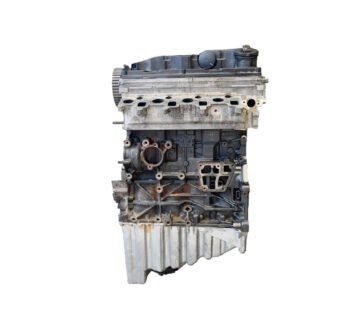Affordable Amarok Engine for Sale-- Enhance Your Car's Performance with Us
Affordable Amarok Engine for Sale-- Enhance Your Car's Performance with Us
Blog Article
Navigating the Refine of Engine Option: Trick Factors to Think About
The process of engine selection is a multifaceted undertaking that requires careful assessment of several important aspects to ensure placement with functional goals. Efficiency needs, fuel effectiveness, and budgetary restrictions are simply the beginning; considerations around environmental effect and maintenance support play a crucial duty in the decision-making structure. Recognizing exactly how each of these elements engages can dramatically affect the efficiency and longevity of your financial investment. The intricacies of each factor might not be promptly evident, triggering additional exam of exactly how to strategically navigate this facility landscape.
Performance Demands
When picking an engine, it is important to establish clear efficiency demands that straighten with the desired application. Performance needs encompass a series of elements, including power result, torque qualities, and responsiveness, which must be tailored to the details demands of the vehicle or equipment in question.
Power outcome, typically determined in horse power, determines the engine's capability to thrust a car or execute a task effectively. Torque, on the other hand, is necessary for applications requiring solid initial acceleration or hefty lifting abilities. An understanding of the functional environment is likewise vital; for example, engines designed for off-road applications may need various performance features compared to those intended for highway use.
In addition, think about the functional lots and duty cycle, as these elements influence the engine's durability and reliability. In high-load circumstances, a robust engine style may be required to stop early wear or failing. Furthermore, performance demands should likewise incorporate factors to consider for exhaust criteria and governing compliance, especially in regions with rigid environmental laws. By specifying these efficiency parameters early in the option procedure, stakeholders can make educated choices that boost overall functional effectiveness and performance.
Fuel Efficiency Factors To Consider
While efficiency requirements are critical, fuel performance is similarly important in the engine choice procedure, as it directly impacts operating prices and environmental sustainability. Fuel-efficient engines take in less fuel per device of job performed, which not just minimizes overall expenditure yet also minimizes greenhouse gas discharges. As organizations progressively focus on sustainability, choosing an engine that maximizes gas efficiency can boost corporate duty and compliance with ecological laws.
When assessing gas efficiency, it is important to think about the engine's layout and technology - amarok engine for sale. Advancements such as turbocharging, straight gas injection, and crossbreed systems can significantly improve fuel economy. Additionally, understanding the operating problems and obligation cycles of the engine application is vital; engines might execute in different ways under differing speeds and loads
Additionally, producers commonly provide fuel consumption data that can be utilized to compare numerous engine alternatives. It is advisable to assess these specifications in real-world scenarios to ensure accuracy. The type of fuel made use of can additionally affect gas effectiveness; alternate fuels may provide better performance and reduced emissions. In recap, gas effectiveness is a multi-faceted consideration that calls for comprehensive evaluation throughout the engine choice procedure.
Spending Plan and Expense Analysis
Budget and price analysis acts as a vital part in the engine selection procedure, affecting both short-term financial investments and lasting operational expenses. When evaluating possible engines, it is necessary to think about not just the first acquisition price however also the complete cost of possession, which includes installation, upkeep, fuel usage, and possible downtime.
A thorough evaluation must begin with the upfront expenses associated with the engine, consisting of essential adjustments or ancillary tools. Nevertheless, focusing entirely on first expenditures might result in misguided decisions. Assessing operating expenses over the engine's life expectancy is just as crucial, as more expensive engines could provide premium fuel efficiency or reduced upkeep demands, eventually leading to cost financial savings.

Ecological Effect Variables
Recognizing ecological impact aspects is essential in the engine selection process, as sustainability considerations have become increasingly vital for both regulative conformity and company duty. Organizations must evaluate the exhausts created by numerous engine kinds, consisting of co2, nitrogen oxides, particle issue, and unburned hydrocarbons. These emissions contribute significantly to air pollution and climate modification, demanding a mindful evaluation of the engine's eco-friendly impact.
Furthermore, fuel type plays an important function in environmental influence. Engines powered by renewable resource sources, such as biofuels or hydrogen, tend to have a reduced environmental impact contrasted to standard nonrenewable fuel sources. Additionally, the lifecycle analysis of the engine, from manufacturing with procedure to disposal, should be considered to understand the complete range of its environmental ramifications.

Maintenance and Assistance Alternatives
When picking an engine, the accessibility of maintenance and support alternatives is an important consideration that can considerably influence operational effectiveness and longevity. Comprehensive upkeep plans make certain that the engine operates at peak efficiency and minimizes unforeseen downtimes. It is important to assess the producer's support network, consisting of the accessibility of qualified professionals and service centers.
Assessing the ease of access of extra components is also essential. A trusted supply chain for parts can decrease lead times for repair services and upkeep, consequently improving total performance. Additionally, think about the convenience of obtaining technical documents and training sources, which are vital for making certain that employees are click here to find out more well-equipped to manage routine and emergency situation circumstances.
One more important factor is the service warranty and solution contracts provided additional hints by the producer. Eventually, a positive method to upkeep and assistance not just extends the life of the engine however likewise contributes to the general success of the procedure.
Conclusion
To conclude, the process of engine selection demands a thorough evaluation of numerous essential variables, consisting of performance needs, fuel performance, budget plan constraints, ecological effect, and maintenance support. By carefully examining these aspects, educated choices can be made that line up with functional purposes and sustainability goals. Ultimately, a calculated strategy to engine option will certainly make certain optimal efficiency and longevity while dealing with economic and ecological considerations successfully.
While efficiency demands are vital, gas effectiveness is just as important in the engine choice procedure, as it directly influences operating costs and environmental sustainability. As companies progressively focus on sustainability, selecting an engine that enhances gas effectiveness can boost corporate duty and compliance with ecological policies.
In addition, comprehending the operating problems and task cycles of the engine application is vital; engines may do in a different way under differing speeds and tons. (amarok engine for sale)
Reviewing operating costs over the engine's life expectancy is similarly essential, as more pricey engines could offer exceptional gas performance or reduced maintenance requirements, inevitably leading to set you back savings.
In final thought, the procedure of engine option necessitates a thorough assessment of numerous crucial variables, including efficiency requirements, fuel efficiency, budget plan restrictions, environmental impact, and maintenance support. - amarok engine for sale
Report this page